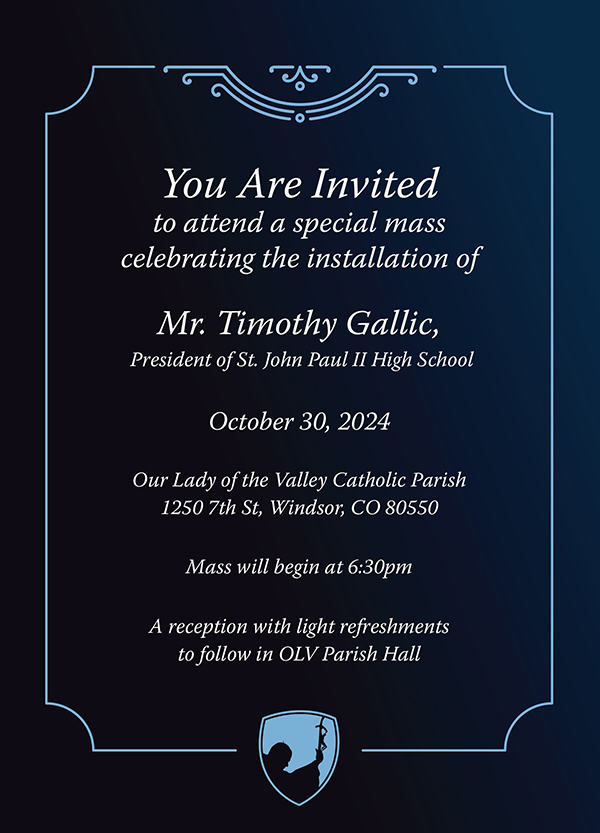From the Headmaster's Desk
A Question of Habit
At the start of this school year, Mrs. Hockel and I moved into a new house (we always manage to save such major events for immediately prior to the commencement of a new school year). And now we have the joy of breaking out the boxes and seeing the same old things in the same light that’s ever shone, but the new paint colour seems to have breathed excitement into the doldrums of the cutlery.
I very much like my knives, not merely because they’re mine but because of the weight and heft that there is to them. My knives are as battered and in need of a good sharpening as I am. And now that I’ve heaved the piano into three different places to make sure it fits the room correctly, I am now allowed to play it. And it strikes me that both with the knives and with the piano there is a strange goodness that I am seeing. It’s certainly not that the knives are the greatest knives or that the piano is the perfect piano. So I am both seeing a good and a not-as-good, and I’m stuck mulling it over.
I’m a miserable piano player despite my love of it, but I sound immeasurably worse on a piano other than my own. The chips in the keys of my piano help me to feel out better where I am, and I know precisely how to press the sustain pedal on mine because of how practiced I am with its defects. I don’t mean to say that I don’t appreciate playing on the grand piano when presented the opportunity, nor am I saying that properly sharp chef’s knives wouldn’t severe me as well as my shoddy set. But this is precisely what it is to fall into a habit, isn’t it?
I’m neither advocating for the highest quality stuff nor am I saying the defective is better for its familiarity—such a claim surely sounds like Hell (especially when taken into the vein of virtue and vice). But it reminds me of O’Connor’s claim in one of her letters. She says, “I can, with one eye squinted, take it all as a blessing.” If we force the view, we are capable of distorting our view of reality far beyond the realm of what is true. We might skew the bad to, in our view, be like the good. Worse, we might let out vision make scant of the good. The object of humility is to see things as the Creator sees them, and to know them as He knows them.
And that is what we are taking the time to think and pray about at the start of the new school year. Many people are tempted to look at a new academic year the way we might characterize the New Year and fill it with promises to the self and resolutions that we don’t intend to keep. Those vapid resolutions come to naught most typically because of a lack of humility.
It reminds me of the phrase, ‘being the best version of yourself’, which we all understand even though it’s rather silly. You are, always and constantly, throughout your life. Is there a multitude of me to select from, or is it rather one me in a small way of the eternal present as I pursue Goodness through space and time? If the former, I picked a lousy model and I should go out on a shopping spree to replace, like the dull knife or the clunky piano, those portions of myself that are such a bother. But if it’s the latter I can instead begin to see the daily opportunities to select the good.
It's like this new house that Mrs. Hockel and I are in. For nine years we’ve been praying with our little family. It’s never been quite to our satisfaction because the home altar’s never been done quite as we wished it would be. But we prayed, and that was good. It wasn’t perfection, but it was a pursuit and imitation of it. We knew the kinks, so to speak, and so when in unpacking the candles and the portraits for our altar this time, we’ve got it a little closer—a little more refined—and so bit by intentional bit we’re getting close to the right and the good.
Blaise A. Hockel,
Headmaster














